Can chickens eat coconut? Known for their numerous health benefits and delicious taste, we will examine if they’re safe for our clucking companions. The answer is a resounding yes!
Coconuts are safe for chickens and packed with heaps of essential minerals and vitamins, such as potassium, magnesium, vitamin C, fiber, and healthy fats. These nutrients can help maintain your chickens’ overall health and support their immune system.
Today, we’ll be cracking open the truth about this exciting and exotic treat for our feathered friends. So, get comfortable, and let’s dive into the world of chickens and coconuts and see if this tropical delight can be a yummy snack for your backyard flock.
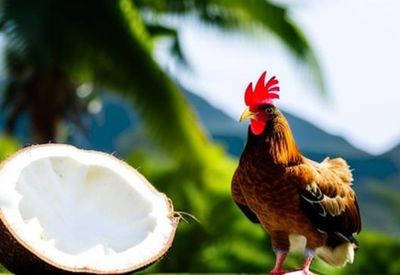
Can chickens eat coconut?
First, let’s address the topic everybody’s talking about: are coconuts safe for chickens to eat? The answer is yes, in moderation. Chickens can eat coconut, either as fresh meat or shredded, and they’ll love the flavor.
Another benefit of treating your feathered friends to coconut is its hydration factor. Coconuts contain refreshing natural coconut water that is renowned for its hydrating properties. This can be particularly useful during hot summer days when you want to provide your flock with a hydrating and nutritious treat to help them stay cool and healthy.
Now that we know coconuts are safe and nutritious for chickens let’s explore the various ways to serve them to your flock. Fresh and dried coconut meat is a hit among chickens.
Crack open a fresh coconut, remove the delicate white flesh, and serve it raw or dry it under the sun or in an oven to make delicious, crispy coconut flakes. Either way, your chickens are sure to love this island-inspired offering.
[ChickenAffiliate]
The benefits of eating coconut for chickens
Chickens and coconut might seem like an unlikely pairing, but once you learn about these benefits, you may be eager to make coconut a regular part of your birds’ diet. So, read on as we delve into the excellent benefits of eating coconut for chickens.
Boost in Immunity
Coconut contains a high concentration of lauric acid, which is well known for its antibacterial, antiviral, and antifungal properties. Adding coconut to your chickens’ diet gives them an added layer of protection against various infections and diseases.
A healthier flock means happier chickens; we all know that happy chickens lay more eggs – it’s a win-win situation.
Improved Digestion and Gut Health
Another benefit of coconut comes from its high fiber content. Chickens love to peck at things, and providing them with coconut shavings or flakes can be an excellent way to aid their digestive process.
The fiber helps to regulate their digestive system and prevents them from becoming constipated. Furthermore, the healthy fats present in coconut can aid in the absorption of fat-soluble vitamins, which further contributes to the overall well-being of your flock.
Increase in Protein and Energy Content in Eggs
Feeding your chickens coconut can also increase the protein and energy content of the eggs they produce. Coconut is an excellent source of plant-based protein, and incorporating it into your chickens’ diet can ensure they’re getting the required protein intake deemed essential for egg production.
Plus, you’ll get more nutritious eggs for yourself and your family.
Healthy Skin and Feathers
Coconut oil, in particular, has been shown to benefit skin and hair health. Just like it works wonders for human hair, coconut oil can do the same for your chickens by improving the health of their skin and feathers.
Regularly applying a small amount of coconut oil to your chickens’ skin and feathers can help prevent mite infestations, soothe irritated skin, and promote healthy feather growth.
Feather-Pecking Reduction
Finally, one of the lesser-known benefits of coconut in the chicken world is that adding coconut to their diet can help reduce feather-pecking. Feather-pecking is a common problem in poultry for various reasons, including stress, boredom, and insufficient nutrients.
Since coconut is both nutritionally rich and a tempting treat for chickens, integrating it into their diet can help reduce overall stress levels and the chances of feather-pecking behavior. A bonus is that your birds enjoy a tasty, healthy treat while preserving their beautiful feathers!
Things to watch out for when feeding coconut to chickens
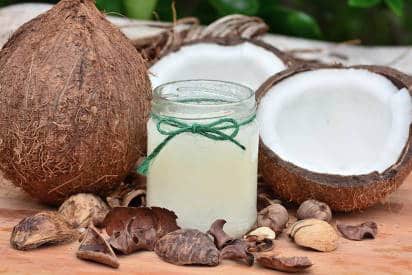
Coconut can be a nutritious and unique addition to your chickens’ meals, but there are certain things you need to be aware of before you go nuts with this fruity treat. Let’s discuss some essential points to watch out for when feeding coconut to your beloved chickens.
Choose the right form of coconut
When feeding coconut to your chickens, giving them the right part of the coconut plant is important. Typically, chickens consume the flesh or meat of the coconut, also known as copra. This can be fed to them both fresh or dried, depending on your preference and availability.
Although chickens might find themselves attracted to coconut shells or husks, be cautious about letting them consume these – the shell can be tough and indigestible, while the husk has a high tannin concentration. Overconsumption of these parts can lead to gizzard impaction and other digestive issues in your flock.
Understand the nutritional benefits and potential risks
While coconut can be a high-energy and protein-packed snack, it’s crucial to know its nutritional benefits and potential risks before introducing it into your chickens’ diet. The flesh of a coconut is rich in natural oils, healthy fats, and proteins, which can benefit your chickens, especially as a supplement during the colder months.
However, remember that coconuts are high in saturated fats, which, if consumed in large quantities, can lead to obesity and related health problems. When introducing this treat, it is essential to monitor your flock’s general health and proportions.
Feed in moderation and as a treat
As tantalizing and nutritious as coconut might be, it is not a whole or ideal diet for your chickens. To ensure their well-being, it is essential to ensure coconut is only fed as an occasional treat or supplement.
Chickens require a balanced diet rich in vitamins, minerals, and proteins to remain healthy and productive. Before introducing the coconut treat into their diet, consult a reputable chicken feed guide to meet their nutritional needs.
Monitor your chickens for any adverse reactions
Lastly, when introducing any new food into your chickens’ diet, monitoring them for any adverse reactions is essential. When trying coconut for the first time, pay close attention to their behavior, energy levels, and general well-being.
If you notice any sudden changes or signs of illness, discontinue feeding the coconut and consult a seasoned chicken keeper or poultry veterinarian for guidance.
How often should chickens eat coconut?
As delightful as coconuts are for chickens, it’s essential to remember that they should be served only as a treat. Moderation is the key! While coconuts are full of nutrients, they are relatively high in fat.
Regularly feeding your chickens high-fat foods can cause them to gain excess weight, leading to various health problems. Aim to serve coconut treats occasionally, and remember to maintain a balanced diet of quality chicken feed, fresh water, and the occasional tasty tidbit.
How to prepare coconut for feeding to chickens
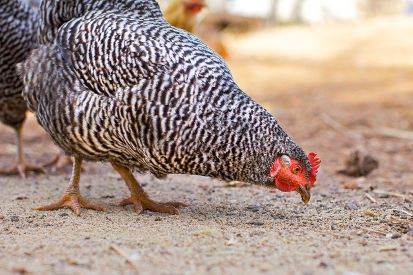
In this section, we will guide you through the simple steps needed to prepare coconut for feeding to chickens. Let’s dive into the tropical world of coconuts and see why your chicks will go ‘nuts’ over this delicious snack!
Remove the meat from the outer husk
To start, you will need a fresh coconut. Crack it open by hitting it along the equator with the back of a heavy knife or a hammer. Once you have split the coconut in half, use a blunt-edged spoon or knife to separate the white meat from the outer husk carefully.
This may take a little bit of force, so be prepared to give it a good push. With some practice, you’ll become a coconut-cracking expert in no time.
Chop into small pieces
Once you’ve mastered the art of removing the meat from the husk, it’s time to make the pieces more manageable for your chickens to eat. Chop the white coconut meat into small, bite-sized pieces using a sharp knife or a food processor.
Remember to keep the size appropriate to the size of your birds – smaller pieces for bantam breeds and slightly larger pieces for larger breeds. By ensuring the pieces are small and easily pecked at, you can help prevent any potential choking hazards.
Hang coconut halves for chickens to peck
Now for the fun part! Fill one of the empty coconut shells with the chopped coconut pieces. Attach a secure rope, string, or bungee cord to the shell, and hang it at a height that allows your chickens to peck at the tasty morsels inside.
This interactive feeding process provides a nutritious snack and encourages chickens to exercise, stretch their necks, and engage in natural pecking behaviors. You may even find your chickens competing for their newfound tropical treats!
The outer shell and husk are too tough to eat
The white coconut meat and its water are perfect for feeding chickens, but the outer shell and husk should be reserved for other uses.
The fibrous husk can be used as nesting material or mulch in the garden, while the shells can be repurposed as a natural planter, rustic container for water, or even a cute birdhouse. Get creative, and find ways to give these materials a second lease on life!
Remove any uneaten pieces
As with any treat, keeping an eye on your chickens as they enjoy their coconut feast is essential. Monitor their consumption, and remove any uneaten pieces within a few hours. This will help prevent spoilage, mold, or any other unwanted issues in the coop.
Treats like coconut should be supplemental to a well-rounded diet and not replace regular chicken feed – everything in moderation for happy, healthy feathered friends.
Can baby chickens eat coconut?
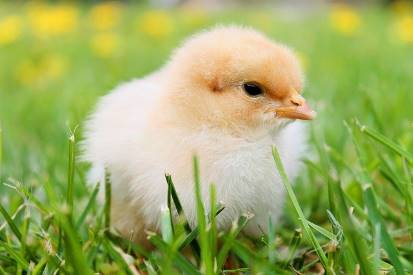
Did you know that baby chickens, also known as chicks, can safely munch on coconut? This tropical fruit is not only a delicious treat but also packed with numerous nutrients that can contribute to the overall health of your little feathery friends.
However, feeding coconut to baby chicks in moderation is essential, as excessive amounts might not be suitable for their tiny bodies. Remember that chicks have different nutritional needs than adult chickens, so their diet should be carefully adjusted to ensure they grow healthy and strong.
So, next time you’re looking for a wholesome snack for your baby chicks, don’t hesitate to offer them some coconut and enjoy watching them savor this delightful treat.
Can chickens eat the outer husk of coconut?
While chickens can indulge in the sweet, fleshy part of the coconut, there is one part of the tropical fruit they can’t handle: the outer husk.
Coconuts have a tough, fibrous exterior, which is nearly impossible for chickens to break through, let alone digest. So, when serving coconut to your birds, remove the husk to avoid any potential digestive problems.
What other fruits can chickens eat?
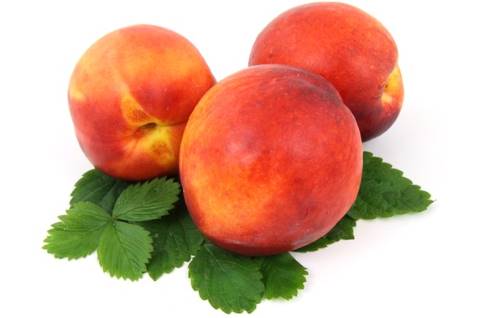
Are you constantly looking for healthy snacks to give your chickens apart from the usual coconut? Well, look no further! Like us, chickens enjoy various fruits that can make a tasty treat and break their meal monotony. Here are five delicious fruits your feathery friends will appreciate.
Peaches
Not only are peaches a deliciously juicy summer fruit, but they’re also packed with essential nutrients that can benefit your chickens. Peaches are rich in vitamins A, C, and E, keeping your chickens’ immune systems strong, improving their eyesight, and helping maintain their skin and feathers’ health.
Giving your feathery friends peaches without the pit is perfectly fine, as it can be a choking hazard or contain toxic substances. Chop peaches into small pieces, or mash them up, and your chickens will be clucking with glee!
Read More: Can Chickens Eat Peaches? 5 Important Benefits
Cherries
If you’re lucky enough to have access to fresh, ripe cherries, share some with your chickens. Not only do cherries provide a delightful, sweet flavor, but they’re also packed with antioxidants and anti-inflammatory properties. This means cherries can help protect your chickens from diseases and support their health.
Just like with peaches, remove the pits before giving cherries to your beloved birds. Your chickens will love this bright and colorful addition to their diet!
Read More: Can Chickens Eat Cherries? 6 Fantastic Benefits
Mango
If you thought mango was a tasty, tropical treat just for humans, think again. Chickens can reap the rewards of this delectable fruit too. Mangos boast a plethora of nutrients, including vitamins A and C, needed for maintaining good vision and a strong immune system.
Peel the skin, remove the pit, and slice the mango into bite-sized chunks to give your chickens a delicious snack that is healthy and has a welcome tropical twist.
Read More: Can Chickens Eat Mango? 5 Amazing Benefits
Plums
Another plump, juicy fruit that chickens can enjoy is plums. Plums are loaded with fiber and minerals, contributing to maintaining a healthy digestive system and keeping bones strong.
Just like peaches and cherries, the pit of the plum should be removed before serving it to your chickens. Cut plums into smaller pieces or even puree them for your flock to feast upon, and they will thank you with a symphony of clucks!
Read More: Can Chickens Eat Plums? 5 Excellent Benefits
Apricots
Lastly, apricots are another nutritious fruit that your chickens will love. Rich in vitamins A, C, and E, potassium, and other essential nutrients, apricots can benefit your feathered friends.
Remove the pit and serve fresh or dried apricots in small, manageable chunks. Your chickens will adore the sweet tanginess of this golden fruit and may even reward you with a delightful egg-laying session!
Read More: Can Chickens Eat Apricots? 4 Surprising Benefits
Can chickens eat coconut – final thoughts
And there you have it, folks – the tropical taste of coconuts is safe and packed with health benefits for your beloved chickens.
Just remember to remove the outer husk, provide your flock with coconut as an occasional treat to maintain a balanced diet, and weigh the options of serving it fresh, dried, or in its natural water form.
Related Articles:
